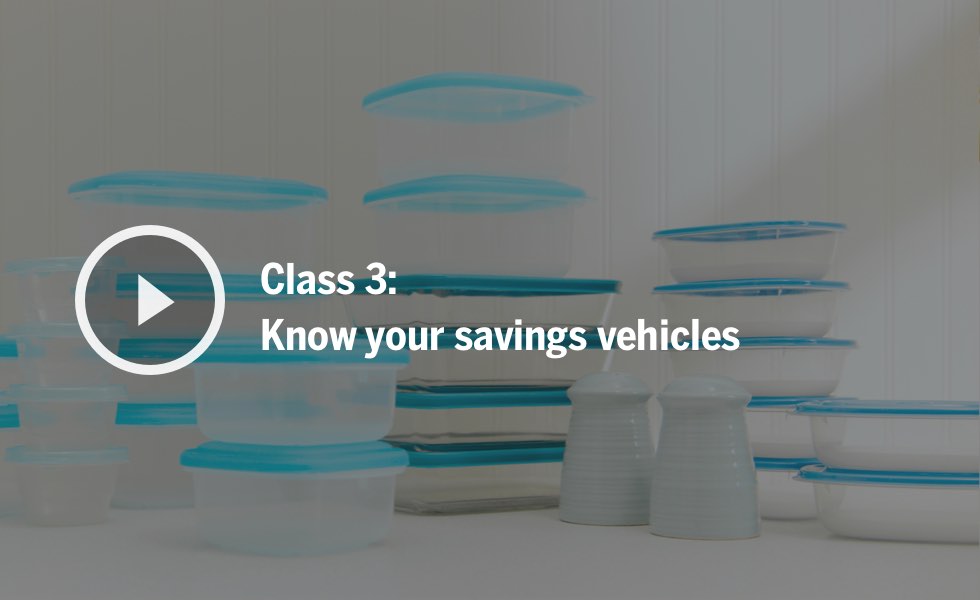Savings Savvy: Managing your financial health
How is your financial health? In this second class of a five-part series, Susan, our savings expert, explains how to take care of it and gives you her tips and tricks for making a good budget.
-
Class introduction
You may have wondered before what it truly means to be financially healthy.
This includes savings and financial planning. But to get there, we first need to take a look at the basics: budgets. And that's exactly what this whole class is about.
Budget: separating expenses from income
Budgeting is a bit like flossing your teeth... you have to remind yourself to do it, but it's definitely worth it.
Budgeting is what allows us to keep track of what's coming in and going out of our pockets. And without that perspective, it becomes much more complicated to know how much money you can put aside.
First, we recommend that you start with your income. This obviously translates to your salary, but you may also be benefitting from allocations, pensions or rental income.
For expenses, let's start with those with a fixed amount, such as rent, mortgage, car expenditure, insurance…
Then, let's add varying expenses, such as restaurant outings and other more occasional expenses. Finally, because we are never completely safe from bad luck, we can leave some leg room for unexpected expenses.
My trick is to use my bank and credit card statements as a guide. That way, I make sure I don't forget or underestimate anything.
The Fonds de solidarité FTQ even has its own budgeting tool to help you better visualize your cash inflows and outflows, and to help you determine exactly what you can afford to save. If you realize that your expenses are greater than your income, you have two options: either you reduce your expenses or you increase your income.
While neither option is easy, the first is usually the simplest to implement. Take the time to prioritize your expenses.
Debts: distinguishing the good from the bad
Making a budget also means taking into account your debts. The first thing to do is to distinguish the good from the bad.
Good debts include those that help get a project off the ground, such as financing to buy a house or go back to school. Even if you have to pay them back eventually, these debts increase your net worth. Plus, they often have a lower interest rate.
On the other hand, bad debts, such as unpaid credit card balances, are the ones which will cost you the most in interest or penalties.
If you have identified bad debts in your exercise, make sure to pay them off before you start saving more. In general, it's much easier to prioritize the payment of debts with the highest interest rate.
Emergency funds: 3 to 6 months of expenses
Having an emergency fund could help you feel more peaceful. And I'm not the one to say it, but having peace of mind is good for your health. Basically, it's a separate account from your checking account that can help you stand up to unforeseen events. It also prevents you from giving in and treating yourself with your spare cash.
Depending on your ability to save and the stability of your income, a good emergency fund can represent around 3 to 6 months of expenses.
Class recap
Like anyone who wants to stay healthy, you need to exercise often. The same goes for financial health and budgeting.
Speaking of rolling, our next class will be about vehicles. Not as means of transportation, but rather as savings vehicles.
These articles may be of interest to you

Debt repayment made simple
Some forms of debt can be more of a burden than others. Fortunately, there are plenty of ways to take the stress out of debt repayment.

A fresh start for your finances
As the year winds down, we also approach the end of a fiscal cycle. This is an ideal time to review your financial situation and savings plan to make sure you're on track to achieve your goals.

Everything you need to know about building an emergency fund
An emergency fund is essential for dealing with life's uncertainties. Here are a few ways to build a financial cushion that meets your needs.

